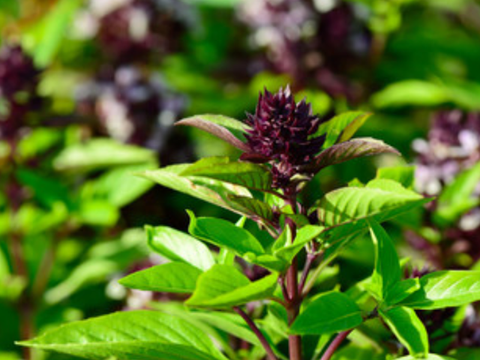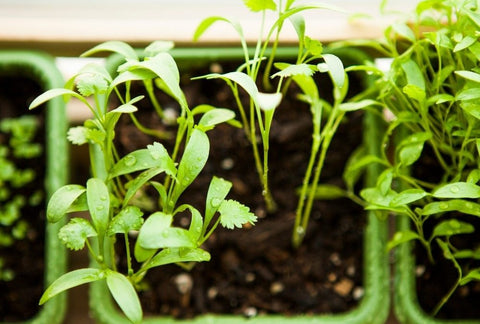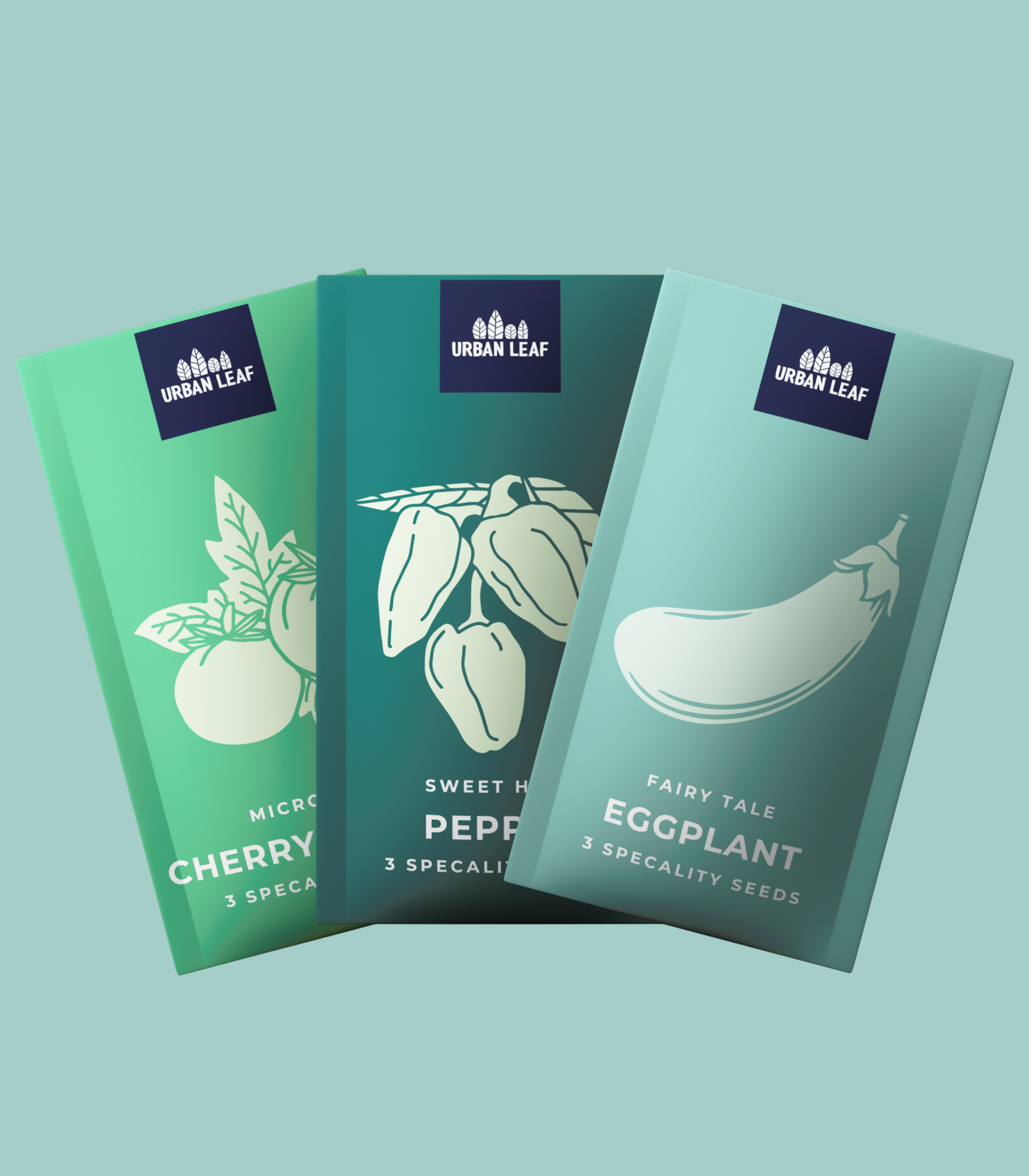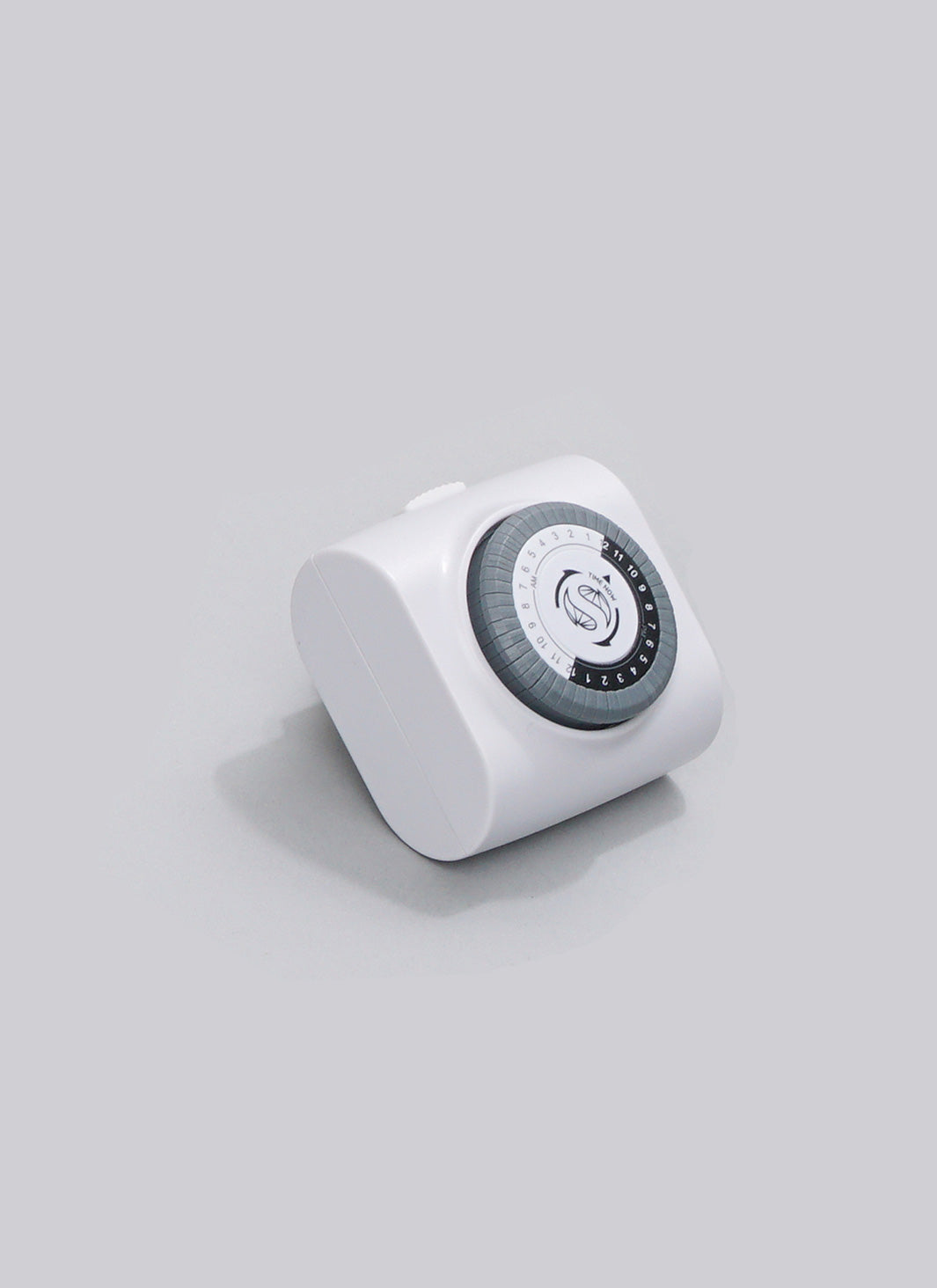Winter’s over, and after a year of being trapped indoors, it sure would be nice to thaw off that ice on a beautiful warm tropical beach somewhere in Southeast Asia. Picture yourself sitting by the shore, facing the cerulean blue water, sipping a refreshing mojito, and having some fresh seafood curry for an afternoon bite — Aaah! Doesn’t that just make you wanna fly there right now? Well, if you can’t, don’t fret! Because we’ll let you in on a little secret that will transport you straight to Southeast Asia just by using your senses, and that secret is Thai Basil! If you’re not growing Thai basil indoors already, this blog will surely convince you to do so, and here’s why.
What is Thai Basil?
Originating from Southeast Asia, Thai Basil is the fun, exotic cousin of the popular sweet basil everyone has come to know and love in the West. Thai Basil has a more robust flavor with a spicy kick of licorice and anise than sweet basil, which has a minty and peppery taste. The plant also has a striking look due to its purple stem and flower buds, which sometimes continue to spill out on its narrow leaves. Thai Basil is also very easy to grow in your home and has numerous benefits that we will continue to discuss below.
Is Thai Basil Perennial?
According to seedaholic.com, Thai basil is a perennial but is usually grown as an annual. You can also continue growing Thai basil indoors all throughout the year successfully.
The Benefits of Thai Basil
Culinary Uses

If you’re a fan of Southeast Asian cuisine, then this reason alone should be enough to convince you to start planting some Thai Basil seeds in your garden. The distinct and refreshing flavor of Thai Basil makes it the key ingredient to achieving a delicious Thai Green Curry, Vietnamese Pho, and even Coconut Mango Pudding.
Thai basil also holds well even when exposed to high heat, unlike its sweeter counterpart. So when you’re cooking with the herb, you don’t have to worry about putting it in too early, and it’s also the reason why people love putting it in stir-fries! Once you’re done feasting on all those savory dishes, you can wash them down with a cold sweet Thai Basil seed drink. Yup – that’s right! You can drink the seeds as well. The culinary possibilities are endless with this versatile herb.
Medicinal Benefits
Because Thai Basil seeds can be added to drinks, many have found that drinking them can also cure many ailments like fever, dry cough, and colds. Adding it in smoothies or juices can aid in weight loss and promote better digestion as well. Research shows that Thai Basil is high in antioxidants, anti-cancer, anti-viral, anti-bacterial, and anti-fungal properties, which is why it has been used in traditional healing since centuries ago.
Aside from ingesting Thai Basil, you can also bruise the leaves and inhale its aroma to relieve stress. If you want to take the extra step, you can even turn it into a balm so you can rub it around your forehead, temples, and below your eyes to promote relaxation. I don’t know about you, but growing an anti-stress herb at home wouldn’t be such a bad idea in crazy times like these.
Aesthetic Purposes
If you feel like sprucing up your home with a dash of color, growing Thai Basil indoors is easy and will make a great addition to your indoor garden. Besides going well with salad, Thai Basil’s unique purple flowers, in contrast with its bright green leaves, make it a great focal point on your kitchen countertop or windowsill. In fact, Thai Basil is actually classified as an ornamental cultivar according to this study from the University of Brasilia.
Easy To Grow
On top of being flavorful, healthy, and pretty, Thai Basil is also incredibly easy to grow and lasts longer than sweet basil. While sweet basil is an annual herb that only lasts for one growing season, Thai basil is a perennial herb that can keep growing for two to three years.
The plant also loves to bathe in sunlight, so you don’t have to worry about leaving it out in the summer heat, and during the winter, all you have to do is put it under a grow light. As long as you keep your Thai Basil nice and warm (65 to 70 degrees F), give it just enough water, and make sure to pinch the tip of the branches, then you’ll be rewarded with some fragrant Thai Basil every summer.
How To Grow Thai Basil At Home
So to answer your question about how to grow Thai basil at home, here’s a guide on how to get started! You can either grow them from seed or stem cutting.
How to Grow Thai Basil: Growing Thai Basil From Seeds
- Get a pot that’s about 6 inches deep or more, and fill it with some slightly moist potting mix.
- Sprinkle the pot with around 4-6 seeds and cover them lightly.
- Place the pot in an area where it will receive a lot of light (65-70 degrees F).
- Keep the soil moist but make sure not to overwater the herb.
- Once the seedlings have their set of first true leaves, thin the Thai Basil to one or two plants per pot, leaving the best-looking ones.
Best Way to Grow Thai Basil: Growing Thai Basil From Cuttings
Growing Thai basil from seeds or stem cuttings are both effective ways, but in our opinion, growing Thai basil from cuttings is much more effective and easier.

- Cut a 4-inch stem right below a node and remove all of the basil leaves on the bottom (about 2 inches from the end of the stem). Note: Make sure the Thai Basil cutting is a piece that hasn’t flowered.
- Place the cut end of the stem in a glass of water and put it by the windowsill or an area with a lot of light.
- Wait for the new roots to grow about 2 inches (usually takes 2-4 weeks), and make sure to change or refill the water as often as needed.
- Get a pot filled with moist potting mix and carefully plant the root cuttings.
- Put the pot in an area where it will receive a lot of light (65-70 degrees F) and let it grow away.








Hi, thank you for the book. I’m looking forward to reading it.
Kind regards
Kea
We live in TX north of Houston
We’re not experienced gardeners.
We bought two small Thai basil plants and it has practically grown itself!! It’s not been our skill. We use it in cooking, salad, tea or just love to chew on the tender flowers and buds – like basil, mint & licorice all rolled into one. We have surely been blessed! So I have to say Thank G*d and pass the basil
We live in TX north of Houston
We’re not experienced gardeners.
We bought two small Thai basil plants and it has practically grown itself!! It’s not been our skill. We use it in cooking, salad, tea or just love to chew on the tender flowers and buds – like basil, mint & licorice all rolled into one. We have surely been blessed! So I have to say Thank G*d and pass the basil
Thnks for the rich information you shared. Keep going and more power to your page